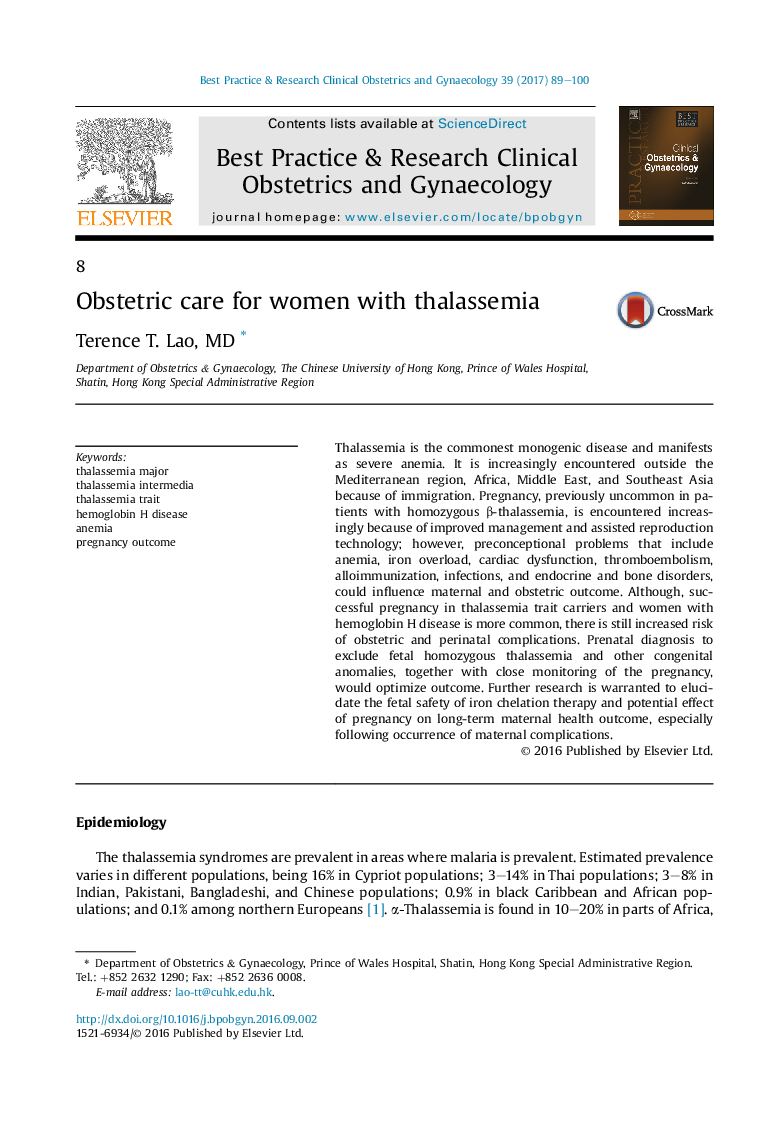| Article ID | Journal | Published Year | Pages | File Type |
|---|---|---|---|---|
| 5691712 | Best Practice & Research Clinical Obstetrics & Gynaecology | 2017 | 12 Pages |
â¢Successful pregnancy is possible in women with thalassemia major and intermedia.â¢Maternal risks are associated with anemia, repeated transfusions, and iron overload.â¢Hemoglobin H disease has variable phenotypes with different effects on pregnancy.â¢Pregnancy in thalassemia trait carriers is generally uneventful.â¢Prenatal diagnosis and fetal monitoring are recommended for mothers with thalassemia.
Thalassemia is the commonest monogenic disease and manifests as severe anemia. It is increasingly encountered outside the Mediterranean region, Africa, Middle East, and Southeast Asia because of immigration. Pregnancy, previously uncommon in patients with homozygous β-thalassemia, is encountered increasingly because of improved management and assisted reproduction technology; however, preconceptional problems that include anemia, iron overload, cardiac dysfunction, thromboembolism, alloimmunization, infections, and endocrine and bone disorders, could influence maternal and obstetric outcome. Although, successful pregnancy in thalassemia trait carriers and women with hemoglobin H disease is more common, there is still increased risk of obstetric and perinatal complications. Prenatal diagnosis to exclude fetal homozygous thalassemia and other congenital anomalies, together with close monitoring of the pregnancy, would optimize outcome. Further research is warranted to elucidate the fetal safety of iron chelation therapy and potential effect of pregnancy on long-term maternal health outcome, especially following occurrence of maternal complications.
